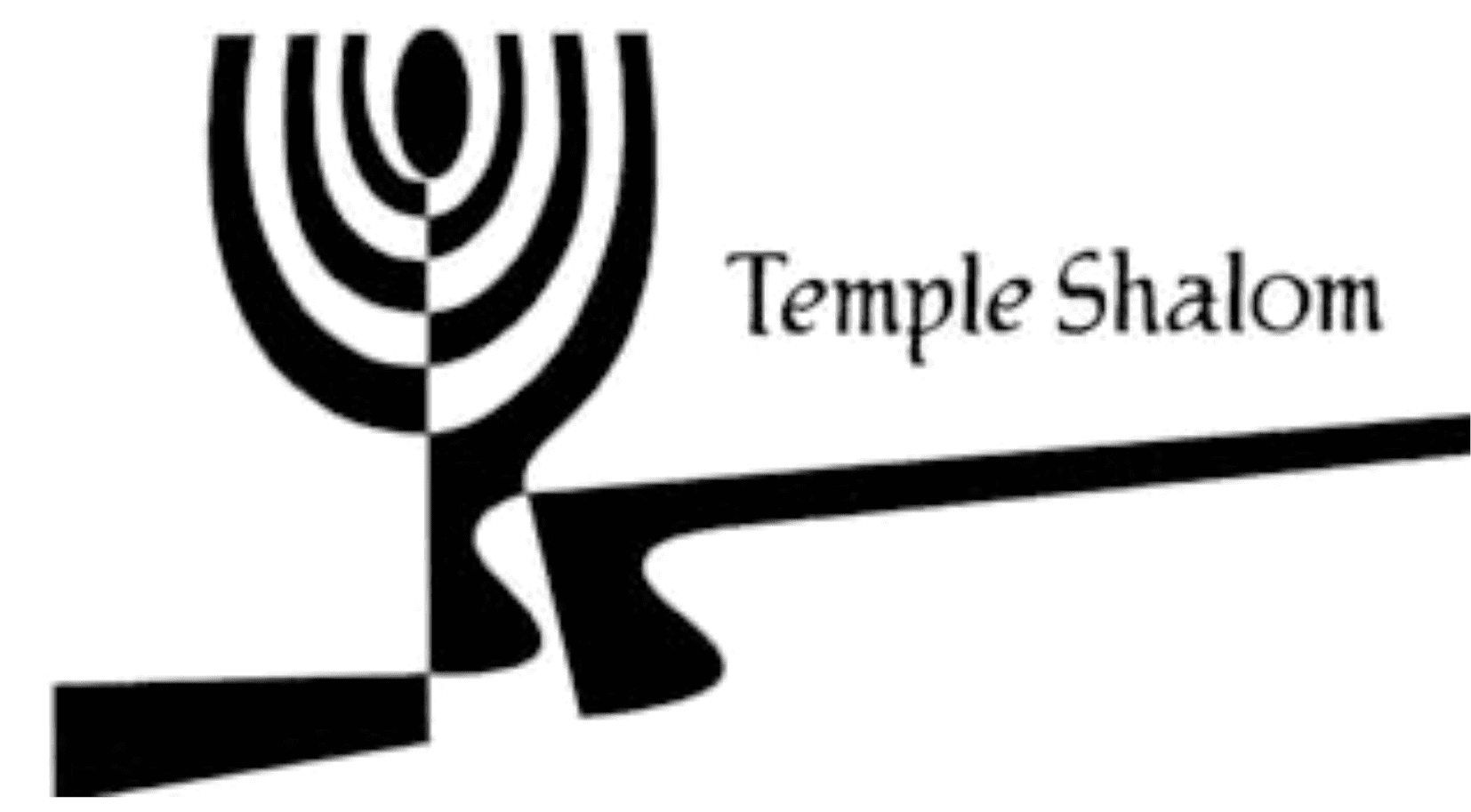Moses is Judaism’s greatest action hero. He stands up to Pharaoh. He sinks the Egyptian chariots. He’s a teacher, a lawgiver, a philosopher, and a leader. My parashah, Shemot, gives us our hero’s origin story. But, if we really pay attention as we read it, we realize that it’s not a very inspiring origin story. Moses does literally nothing in his first 40 years that is considered worthy of inclusion in the story. At age 40, he kills a taskmaster, but not out of a master plan for leading a slave revolt. He shows empathy for the slave being beaten, but he lashes out with rage, not with strategy. Then, he flees to Midian rather than trying to bring change and reform using his position of privilege as a prince of Egypt. He once again shows empathy and individual bravery when he saves Ziporah and her sisters from attack, but he has no larger ambition for national redemption. He spends the next 40 years with his back turned to his people, raising sheep and a family in a simple, happy, and idyllic setting. When G-d does call him to action, first he says he’s not worthy, then he says he has no power, then he says he can’t speak well. G-d has to promise him help to overcome every objection. Two thirds through Moses’ life, the reader has absolutely no reason to expect that anything impressive would come next.
Although Moses doesn’t display leadership at first, the Torah offers us five contrasting snippets of the lives of brave women taking initiative to save the people. They stand tall. They speak brazenly to powerful men. They take initiative. They make plans. This is the very essence of leadership. Let’s look at each in turn. Shifrah (who I’m named for) and Puah refuse to kill the male Israelite babies as Pharaoh had commanded, at great personal risk. When called to the palace, they have the guts to be sarcastic to Pharaoh, using his anti-Israelite racism against him. Jocheved refuses to let her newborn son be killed and hatches a plan to save him. Miriam, Moses’ sister, who must have still been a young girl, participates without fear and without complaint. And Pharaoh’s own daughter was brave enough to raise an obviously Israelite child in the palace knowing her father’s hatred of them.
Reading the parashah, I wonder why G-d picks Moses, who objects and complains at every turn, to lead when he could have picked any of these five women who showed an inclination to bravery and action unprompted. We can’t know exactly why the many generations of the authors of the Torah made the choices they made. But, let’s speculate on some possibilities.
- Maybe Moses was very worthy in ways that we couldn’t see. Maybe he was someone who needed the right circumstances and right supporting cast to have his greatness shine. Literature and movies are full of such characters, diamonds in the rough.
- Maybe there was something wrong with the women. Maybe they had flaws that just aren’t explained in the stories.
- Maybe the women, all besides Pharaoh’s daughter, at least, were just not in a position to take on leadership
- Maybe, there is something about women, as women, that holds them back from leadership.
- Or maybe, the issue lies with the authors and their contemporary audience, not the women. Maybe the biases the times they lived in caused them to only be able to consider a male leader.
I believe the last reason is most likely to have caused the authors to never consider making any of the five brave and powerful women of Shemot the heroes of the story. The authors of the Torah lived in a very patriarchal society. While they undoubtedly met women of valor in their day to day lives and families, they never saw a woman leader, at least not one that was not the mother, daughter, sister, or wife of a king. They never saw a woman take power on her own. Any women leaders of ancient times were considered caretakers who only had the opportunity to lead due to their relationships to powerful men.
Beyond the biases of the authors, we need to consider the biases of the readers. This story was meant to inspire devotion of the masses. If it didn’t speak to the people of the time, it would be much harder to achieve that. Even though in the entire Tanach, Deborah is the only leader unrelated to a male leader, maybe the authors were more progressive than we think. Maybe they deliberately included vignettes of impressive women throughout the Tanach, and only held back from putting women in the spotlight out of concern for how the readers in a patriarchal society would react. Trying to nurture a young and fragile religion, it would have made the most sense to cater to traditional norms, such as men being in charge, when speaking to their audience.
On a personal level, I think it’s important to be cognizant of these biases and to not let them define your life. As a young woman, it’s disheartening that every Torah story displays the pattern of keeping women out of focus in favor of men, never once sharing the mantle of leadership. But, if we can recognize these biases, take them head on, leveraging other parts of the Torah to do so, we can make Judaism more relevant and inspiring to young women like me today.
But, it’s even more important to deal with these issues at a societal level. As Abrahamic religions inspire leaders and policies that govern billions today, we need to be careful of what biases we perpetuate. If we don’t stop young women from feeling that they can’t lead, and stop implicitly telling young men that only they can lead, we will create a society where only men are in charge which will only strengthen the biases of society and make things even harder for the next generation.
We can see how the inability for modern people to separate out ancient biases from religious texts still impacts society today:
- We live in Ontario, a province that funds a Catholic school system with public tax money even though the Catholic church refuses to allow women in leadership roles because of a single line in the Gospel of Luke. Just think about how many daughters of Ontario have been put through a school system that implicitly or explicitly tells them that they can’t lead.
- We live in the Region of Waterloo, where the only woman led mosque needs to pray in secrecy for fear of violence from insecure men that can’t stand to see women in a position of religious authority because it violates the traditional role of women in their society and religion.
- But, it’s not just people of other religions. As liberal Jews in the diaspora, we are seemingly powerless to impact the incoming democratically elected government in the world’s only Jewish state, as they threaten to make life harder for Jewish women who want the right to pray at our holiest site or even just take a bus through religious neighborhoods.
We know what happens when sexism is allowed to run rampant. We’ve seen what happened in the US, my birthplace, with the overturning of Roe v. Wade. Just last month we saw the reversal of decades of progress in Afghanistan as all girls and women were barred from obtaining an education, dishonoring the valiant sacrifices of soldiers from the US, Canada, and many other countries.
It’s not all bleak for women in leadership. Golda Meir became prime minister of Israel without being related to a powerful man. In the US, Hilary Clinton won the popular vote in the contest to become the most powerful person in the world and Kamala Harris was elected vice-president. In the UK, they’ve had three women prime ministers who were not related to powerful men.
Given the simultaneous evidence of progress and regression and seeing how precarious progress can be, as Jews, it is important to think about what we can do to help things improve. We need to figure out how to read our sacred texts in a way that encourages us to make a more just world that takes full advantage of the capabilities of 100% of the people and not just half.
We need to read not just the Torah, but all great literature and philosophy, with a critical eye. It would be a terrible idea to throw away thousands of years of tradition and rip out the foundation of the society we live in. But, we can draw out what is universal and enduring from these works while setting aside the contextual biases of the time. We can build on what is wonderful and stop perpetuating what is harmful.
We can do this not with just modern intellectual tools. We can leverage the clues left in these great texts themselves. In my parashah, there was one man who was pushed by G-d to greatness, but there were five women who took initiative on their own to make Moses’ life possible in the first place. There is nothing saying that we need to only focus on Moses. We can deliberately choose to elevate and celebrate the stories of the five women heroes of Shemot at the same time. And, this is only one parashah. Stories like these are sprinkled throughout the Tanach and we should recognize them.
The biases of society tell us that women are kind, caring, docile, and subservient while men are brave and action oriented. But, the Tanach shows us more. It’s not all Ruth and Naomi. Eve (who I’m also named for), is curious and independent minded. Sarah is ruthless. Rebekah is bold and cunning and she takes initiative to achieve what she thinks is the right outcome. Shemot has the five women heroes I already talked about. Rachav in Jericho makes a decision to take down her own corrupt city. In the book of Judges, Deborah leads her tribe and Yael kills an enemy general. Ester risks her life to speak truth to power and save her entire people. The Tanach even gives us compelling women villains like Delilah and Jezebel.
Judaism and the Tanach were started in a time of strong biases against women, but also provided us with powerful counterexamples against those same biases. In a more just time, the stories of all of the women I just listed might have had them becoming leaders of nations rather than being relegated to supporting roles. But, we have to recognize that as characters without power, the Tanach could have ignored them entirely, but chose not to. Maybe they took the effort to illustrate the power and initiative of women as a hint of a better world that could be or to subtly encourage us to think of women beyond the constraints their society imposed. If we correct for the biases of the times and amplify the stories of women who did amazing things in a male dominated world, we can make Judaism more relevant to modern women and inspire a whole new generation of women to take their rightful places in leadership.
There are so many people in the world today who are in the position of the ancient Israelites of Shemot, hoping for leaders to emerge and champion their causes. If we recognize the equal potential of women to lead and bring positive change, we can double the chance of finding the Moseses of our generation.

